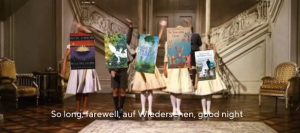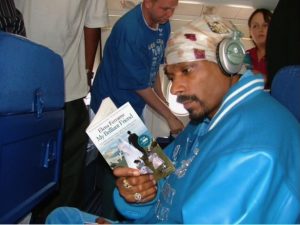
We did it everyone! We are at the final stretch!
Closing Thoughts
I can’t believe this is my last blog post. After so many emotions, nights staying up reading, and page after page of books I would have never read on my own, I am honestly sad that it’s over. I initially took this class as an elective, so my expectations were not high. However, I am happy to say that this is one of the best classes I’ve taken at UBC.
Not only were the books legitimately interesting and fascinating, but the class environment was always genuine and stimulating. Usually, the mere thought of participation made me dread coming to a class, but I found myself growing more excited to come in and hear what our professor had to say and show.
You know, those scenes in movies where the professor is witty and bantering with a class, making everyone laugh. I always felt that was unrealistic or assumingly forced, but this class proved me wrong. I found myself laughing in person and with our classmate’s blogs. This course was genuinely a very pleasing and fruitful experience, especially seeing how academics do not need to be robotic and expressionless.
I really want to thank Professor Jon Beasley-Murray and all the TAs for their hard work throughout the term. The dedication and love you all have for this class is palpable and inspiring to witness each day. I know you will all continue to do and receive great things in life!
Top Picks!
My Brilliant Friend by Elena Ferrante
The drama! The depth! The relationships! This book was jampacked with so many various themes and details. No wonder HBO made this into a show adaption.
I think the fact that both female characters were NOT portrayed as stereotypically helpless or like manic pixie girls really drew me in. What we read was girlhood throughout a time of adversity and survival of the fittest.

This summer, I am travelling to see my family in Vietnam, and that flight will be LONG and brutal. So, obviously, I have to download the series or read the rest of the books!
Money to Burn by Ricardo Piglia
Even though this book was morally fucked up in so many ways, it was SO interesting to read. I was at the edge of my seat and audibly reacting to each page. Mix in a secret/forbidden gay romance? I’m hooked.


Even though this kind of made me spiral, thinking about what morality, proper empathy, and compassion were, I would definitely re-read this and try to find more I missed.
Lesson Learnt
Books are mainly a tool of escape and pleasure for me. That’s why I was hesitant about my ability in class, and this grew as I had a hard time liking our materials.
However, a comment left by Tesi really stuck with me as I moved forward:
“I think that regardless of what we read and whether we agree or not with the behaviours displayed, everything we consume offers a chance to critically analyze ourselves and the world we live in. I hope you are able to at least grow in those reflections!”
Undoubtedly, I was aware of this but I never applied it too well with my reading habits. Every opportunity in life allows us to grow, in turn, I need to do this while I read. These books especially presented different points of history in the world and the vastly unique spectrum of human behaviour and emotion. Through reading, I did truly gain more insight into my beliefs and how the world constantly cycles around me. Hopefully, once this class is done, I can continue to seek books outside of my comfort zone and grow into a stronger and better person each day.
Closing Question
Did the classroom environment help change your perspective on literature too? Did you notice a change in your book preference after reading so many novels in this course?

